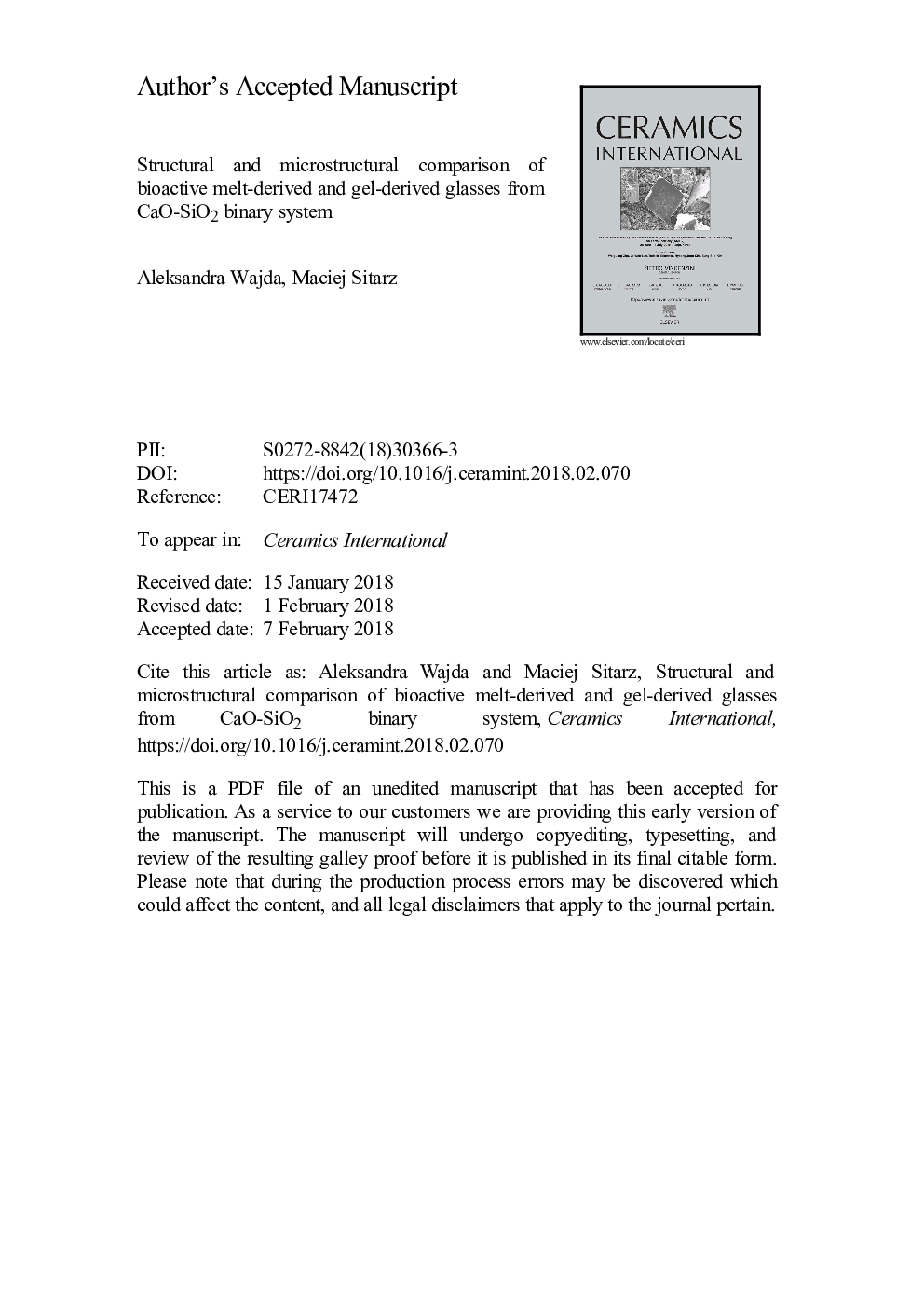| Article ID | Journal | Published Year | Pages | File Type |
|---|---|---|---|---|
| 7887377 | Ceramics International | 2018 | 29 Pages |
Abstract
Two glasses from CaO-SiO2 binary system were obtained by sol-gel and melting techniques. The effect of two different glass obtaining methods was investigated using X-ray diffraction, FTIR, Raman and 29Si MAS NMR spectroscopic methods. The measurements revealed significant differences in the glasses structure. Although both glasses were fully amorphous, the gel-derived glass had a more polymerized structure compared to the melt-derived one. The studied glasses were characterized by BET analysis to provide information about specific surface area of the obtained materials. Apart from microstructural evaluation, thermal properties and in vitro bioactivity study of all glasses were conducted to demonstrate differences in performance of the samples. The formation process of hydroxycarbonate apatite (HCA) layer was investigated using inductively coupled plasma mass spectrometry (ICP-MS) and structural studies.
Related Topics
Physical Sciences and Engineering
Materials Science
Ceramics and Composites
Authors
Aleksandra Wajda, Maciej Sitarz,
